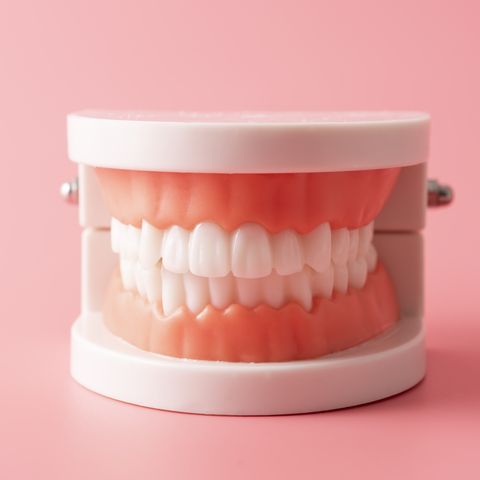10 Causes of Morning Headaches — Why You Wake Up with a Headache - GoodHousekeeping.com
Nearly everyone wakes up with a headache now and then, but if starting your day in pain has become a normal occurrence, that's a sign that something's amiss. But because our bodies are so complex, there are many potential causes of morning headaches and it can be difficult to identify the root cause of your pain. "It's important for anyone with headache that's affecting their life to see a doctor so they can be properly evaluated and not just rely on self-treatment or self-diagnosis," says Simy Parikh, M.D., an assistant professor of neurology at the Jefferson Headache Center at Thomas Jefferson University.
A good physician will do a neurological exam, ask about your medical history and really listen to your story to figure out why you're waking up with headaches. "Many people think that because headaches are so mundane — everybody in the world could experience headache and just about everyone does at some point in their life — that it's not something you can do very much about," says Thomas Berk, M.D., clinical assistant professor in the Department of Neurology Division of Headache Medicine at NYU Langone Health. "The truth is that there are many really effective and safe options for treating headaches."
For starters, there are medications and lifestyle changes that can help prevent headaches from occurring. Some non-pharmacological options include managing stress, changing sleep habits and following special diets (such as one that's low in tyramine, a chemical that may be linked to headaches). "There are also certain supplements and vitamins that could be beneficial, such as magnesium, biotin, riboflavin, coenzyme Q10, feverfew and sometimes butterbur," says Alexander Feoktistov, M.D., founder and director of the Synergy Integrative Headache Center in Chicago. "Patients really need to discuss with their healthcare provider what would be the best and safest for them to take."
"Then there are acute medications, rescue medications or rescue options that patients utilize whenever they have an actual ongoing headache episode," adds Dr. Feoktistov. One treatment that he is excited about is the field of non-invasive neuromodulation, in which FDA-approved devices use magnets or electrical currents to increase or decrease activity in a person's nervous system. No matter what treatment plan you think might work for you, it's smart to meet with a headache specialist who can help you figure out exactly what's going on and create an individualized solution.
Here are the most common causes of morning headaches that your doctor might consider.
1. Primary headache disorder
The number one cause of morning headaches is an underlying primary headache disorder, which essentially means a person has the same type of recurring headache and there's no definitive cause behind it (such as head trauma or dehydration).
Migraine
It's estimated that 39 million people in the U.S. have migraine and doctors say it's by far the top cause of repeated morning headaches. "The symptoms of migraine are that it is moderate to severe in intensity, usually gets worse when someone engages in any sort of physical activity and is associated with nausea, vomiting, sensitivity to light and/or sensitivity to sound," says Dr. Parikh. A migraine episode can last anywhere from 4 hours to 3 days. "It's pretty common for migraine to emerge during sleep or even after someone takes a nap because there is some connection between migraine and a brain structure that regulates sleep called the hypothalamus," explains Dr. Parikh.
It's also important to understand that people who have migraine are very sensitive to all kinds of changes, explains Dr. Berk. "Some of those changes are external to their body like changes in the weather," he says. "Some of them are very internal to their body like hormonal changes or being dehydrated, skipping a meal, and the sleep pattern that you have. Your brain spends a third of its life asleep and it needs to do a lot when you're asleep so if it's not able to do that, your brain is not functioning as it should."
Cluster headache
"Cluster headache is probably the next most common morning headache that's a primary headache disorder," says Dr. Parikh. "This is sometimes called an 'alarm clock headache' because it happens very predictably around the same time every night. The pain is excruciating, extremely severe pain that's located on one side of the face or head or behind the eye and it typically lasts about 15 minutes to 3 hours." It may also be accompanied by tearing or redness of the eye or changes in pupil size. The name "cluster" comes from the fact that these headaches tend to occur multiple times in a period of weeks or months.
Hypnic headache
This is another type of alarm clock headache that can last 15 minutes to 3 hours, but it generally affects people who are older than 50 and pain is on both sides of the body. Hypnic headache is not associated with any changes in the eye, but one other symptom like nausea or sensitivity to light or sound might be present.
Turtle headache
Turtle headache is a rare-but-interesting type of headache that happens when someone wakes up, pulls the covers over their head, goes back to sleep and then wakes up later with head pain. "We're not sure why this happens, but it might be related to some kind of what we call hypoxia or low oxygen when they pull the covers over their head," says Dr. Parikh.
What to do: It's important to speak with your doctor if you think you have primary headache disorder. They may be able to provide medications or tips to help you cope.
2. Sleep disorders
Conditions like sleep apnea are well-known for interfering with sleep, but many people don't make the connection between sleep disorders or sleep-related respiratory disorders (like chronic-obstructive pulmonary disorder or COPD) and morning headaches. "We don't know the mechanism, but the thought is it might be due to a lack of oxygen that is causing the headache," says Dr. Parikh. "Generally these headaches tend to be bilateral or affect both sides and they're usually not associated with nausea or sensitivity to light or sound so that's one way we differentiate them between other types of headache disorders."
That said, Dr. Parikh admits it's still sometimes hard to tell so a sleep study is often done to see if the headache changes or improves after being treated for a particular condition.
What to do: If you're snoring or not waking up well-rested for any reason, Dr. Berk says it's a really good idea to be evaluated by a physician. "If you're not sleeping well, it's really hard — even by treating headaches with medications or injections or anything else that you would want to do — nothing is going to work nearly as well," he explains.
3. Stress
"Stress is the universal trigger for any kind of headache, especially migraine," says Dr. Berk. "Some people might have hormones as a trigger. Some people might have specific foods. Everybody will have stress." In the case of morning headaches, stress can play its usual role in kickstarting pain, but on top of that, it can provide a double whammy by interfering with sleep and setting you up for morning discomfort. "Having not-very-well treated anxiety or depression can contribute to that, sometimes in a really significant way," adds Dr. Berk.
What to do: If you think your mental health could be behind your morning headaches, talk to a neurologist and your therapist. According to Dr. Berk, there are medications that can help prevent headaches that also improve sleep and there are specific antidepressants that can help both migraine and anxiety or depression.
4. Dehydration
There are several ways that dehydration can trigger all types head pain — including migraines, tension headaches, hangover headaches and even heat-related headaches. The change in hydration status of the body could impact intracranial pressure or cause electrolyte abnormalities, says Dr. Feoktistov. "In addition to the headaches, if those changes are severe, dehydration could also produce confusion, disorientation, significant sedation and even coma in some patients," he explains.
What to do: It's not always just a matter of drinking more water (although that's a probably a good idea!). Some preexisting conditions or medications (such as diuretics taken for high blood pressure) can up your risk of becoming dehydrated, so talk to your doctor if you think this could apply to you.
5. Medications
While some medicines (like diuretics that cause dehydration or sleep aids that don't allow for deep, restorative sleep) might put you at risk for a morning headache, the biggest culprits are the painkillers that are used to treat headaches in the first place. Traditionally, doctors have referred to these so-called rebound headaches as "medication-overuse headaches," but Dr. Parikh says they are beginning to use the term "medication-adaptation headaches" to take the blame off people who are in pain and need the medicine.
What to do: "If your headache frequency is pretty high, you might need to take medicines pretty often — more than a couple of times a week — to stop the headaches," says Dr. Berk. (It could be a prescription med, an over-the-counter painkiller or even caffeine.) "Oftentimes you'll experience those rebound headaches in the morning and the reason why is because your body is craving that medicine and it's been hours or maybe longer since you've had it," Dr. Berk explains. If this happens, ask your doctor if you can start a preventive treatment to keep the headaches from happening. "You may still need a medicine to treat the pain acutely every so often, but the goal is to make it much less frequent so that way you don't have this rebounding," says Dr. Berk.
6. Bruxism
Bruxism is just a fancy way to say tooth grinding or jaw clenching. "If you clench or grind your teeth, that may cause a lot of tenderness to the muscles around the jaw, what we call the TMJ area or the temporomandibular joint by the temple muscles," explains Dr. Berk. "If you have a lot of tension and tenderness there, that can sometimes worsen whatever underlying headache you might be predisposed to." That means, if you are already prone to migraines and have low-grade pain in the temple area, it can lower the threshold for a migraine and make one more likely to happen.
What to do: If you're regularly waking up with jaw pain, it's a good idea to schedule a visit with your dentist to see if they recommend anything like a mouth guard to protect teeth or Botox injections to relax muscles. Just keep in mind that the real fix will be figuring out the root cause of your bruxism. "It depends on the cause, but it can include things like behavioral therapy if there's a relationship with anxiety, or it could include getting treated for an underlying sleep-related movement disorder," says Dr. Parikh. Medications, relaxation techniques or even dental treatment may be advised.
7. Low blood sugar
Nocturnal hypoglycemia is the formal name for what happens when blood sugar levels drop in the middle of the night — and it can affect anyone, whether or not you have diabetes. Night sweats, thirst, shakiness, anxiety, sluggishness and a lack of mental clarity can occur along with the headache. "We don't really know exactly the mechanisms behind that connection between low blood sugar and migraine because it doesn't affect every single migraineur, but it's a very, very common factor," says Dr. Feoktistov.
What to do: If you have diabetes, check with your doctor to see how you can keep your glucose levels stable while you're sleeping. For those who don't have diabetes, Dr. Feoktistov suggests having a small protein-rich snack (like a piece of turkey or mozzarella) right before you go to bed. "We usually recommend avoiding eating carbohydrate-rich products because carbohydrates initially spike the blood sugar and then as a reaction to this, our body produces extensive amounts of insulin to bring the blood sugar down and sometimes overdoes it, causing that hypoglycemia," he explains.
8. Musculoskeletal strain
"Patients with chronic neck pain—sometimes due to sleeping in a certain position—may wake up in the morning experiencing a headache," says Dr. Feoktistov. "This so-called cervicogenic headache originates from some type of problem in the cervical spine or cervical muscles."
What to do: Unfortunately there's no one-size-fits-all surefire solution for this type of morning headache because everyone's body is different and we move around quite a bit when we sleep. "It really depends on the specific abnormality in the neck region, but normally I would say to try sleeping in a more physiological or neutral position, which usually means sleeping on the back with a relatively small pillow or a neck roll or neck pillow that would keep this natural curve and flexion off the neck," explains Dr. Feoktistov.
9. Alcohol
If you've ever gone a little overboard at trivia night or celebrated with one-too-many margaritas, you're likely familiar with this kind of morning headache. "What used to be called hangover headache is now called delayed alcohol-induced headache," says Dr. Parikh. "If you've been consuming alcohol earlier in the evening, you can wake up with this."
What to do: It may be that alcohol leads to dehydration, widens blood vessels or triggers inflammation, but we don't know for sure. It's smart to drink water between alcoholic drinks, but once the damage has been done, it's even more important to rehydrate. Dr. Feoktistov recommends drinking plain water, electrolyte drinks or even chicken broth to speed recovery.
10. Brain tumor
When tumors grow in the skull, they can put intracranial pressure on the brain and cause head pain. "It's rare and unlikely they have a tumor, but I think that's what people worry about the most," says Dr. Parikh.
What to do: If you have a brand-new headache that you've never had before that starts during sleep or wakes you up from sleep, she says you should get evaluated immediately. Other red flags that you should see a doc sooner rather than later: severe headaches that quickly build up within a few minutes; headaches that are associated with changes in vision or your ability to move arms or legs or talk or balance; or headaches with night sweats, fevers or weight loss.
This content is created and maintained by a third party, and imported onto this page to help users provide their email addresses. You may be able to find more information about this and similar content at piano.io




Comments
Post a Comment